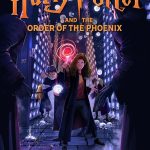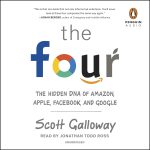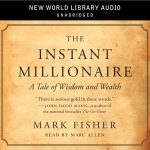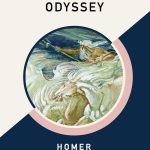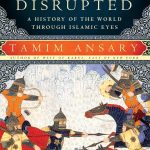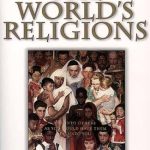
Customers say
Customers find the book entertaining and well-written. They appreciate the interesting storyline with real principles. Readers praise the imaginative writing style and brilliant prose. The science content is compelling and interesting, with physics and human interactions. The characters are well-developed and the dialogue brings them to life. Many consider the author one of the best sci-fi writers of all time. Overall, customers describe the book as a classic that is worth reading.
Make It Yours – See Your Price On Amazon!
Your Sales Price $8.99 - $7.99
A quick rundown of this product’s key features:
In the twenty-second century Earth obtains limitless, free energy from a source science little understands: an exchange between Earth and a parallel universe, using a process devised by the aliens. But even free energy has a price. The transference process itself will eventually lead to the destruction of the Earth’s Sun—and of Earth itself.
Only a few know the terrifying truth—an outcast Earth scientist, a rebellious alien inhabitant of a dying planet, a lunar-born human intuitionist who senses the imminent annihilation of the Sun. They know the truth—but who will listen? They have foreseen the cost of abundant energy—but who will believe? These few beings, human and alien, hold the key to Earth’s survival.
Our Top Reviews
Reviewer: M and G
Rating: 5.0 out of 5 stars
Title: A FANTASTIC, WORLDBUILDING THREE-PART SCI-FI STORY (PART 2 IS THE BEST!)
Review: I chose this book as part of my ongoing goal to read every book that’s ever won the Hugo Award for Best Novel: this is the 1973 winner, one of Asimov’s five! I could tell right away that the book was worth my while, and it delivered right to the finish!BRIEF SYNOPSIS: The Gods Themselves tells the story of a not-to-distant future (though it was 100 years out for Asimov) in which a bumbling scientist (Frederick Hallam) stumbles upon a cross-universe transfer of energy that facilitates limitless clean energy for all mankind. The “science fiction” part of it is that the nuclear balances of protons and electrons are different between the two worlds, so when matter portals back and forth between the two universes its atoms produce continual energy as they work to adjust to the laws of their new universe. The problem, though, is a familiar one in science fiction: when man pushes against the laws of nature, nature pushes back. The story primarily follows two of Hallam’s academic rivals who thwart his desperate bid to protect his scientific reputation by successfully alerting the world about the downsides of the “electron pump” and proposing a mind-bending alternative.FANTASTIC, VARIED SCI-FI: Comprised of three overarching parts (which, when strung together, form the quote by Friedrich Schiller: “Against stupidity the gods themselves contend in vain.”), the novel really has about everything a sci-fi reader could want. Part 1 tells the story of Hallam and his great detractor, Peter Lamont. Lamont offers a great lens through which Asimov helps introduce readers to the world of the novel and provides ample opportunities for Asimov to decry the downsides of defensive, politicized science. Part 2 is my favorite: a detailed, emotionally-evocative glimpse into the “parauniverse” (parallel universe) that sends its matter to our own universe. The beings and family units in that universe form “triads” comprised of one emotional intelligence, one rational intelligence, and one parental intelligence. I don’t want to give away too many spoilers here, but I will share that Asimov’s creation of a completely different universe with fundamentally different laws of biology and physics is SUPER compelling. Taken alone, it’s an absolutely first-class alien and worldbuilding short story of which I loved every second. I can’t recommend Part 2 enough. (Note: In his autobiography, Asimov wrote that the novel, especially the second section, was the “biggest and most effective over-my-head writing [that I] ever produced”.) Part 3 returns to our own universe and, to complete the sci-fi trifecta, is set on a human colony on the moon! Reminiscent of “The Moon is a Harsh Mistress”, the denizens of the moon have adopted a different familial and social order than that found back on earth, setting up quite an interesting set of political and scientific clashes that lead to the climax of the entire book.CONFUSED PHILOSOPHICAL “BOTTOM LINES”: As stated above, I sincerely enjoyed this novel and would recommend it to any sci-fi fan! But something didn’t sit right with me at the end of it, and I couldn’t figure out until the next day what it was–I didn’t really like that, at the end of the day, the human race didn’t face any consequences associated with the “stupidity” (Schiller/Asimov’s word) that they exhibited by failing to take the threat of cross-universe tampering seriously. It was like reading a novel about climate change where, at the end of the day, nobody does anything differently but all the denialists get the self-satisfaction of being proven right in their do-nothingism after all. That rubs me the wrong way. I understand that Asimov wasn’t really attacking that particular element of humanity (he instead focuses pretty extensively on the egoism of the scientific establishment), but it still got to me.My disagreement with the final resolution notwithstanding, this is an absolutely first-class sci-book and I enjoyed it fully! I will read it again, and put it on my short-list of classic sci-fi books to recommend.
Reviewer: Stephen Mann
Rating: 4.0 out of 5 stars
Title: Hard Science Fiction, Readable, By A Grand Master
Review: It took me a while to get into the style, but it was worth the effort. I haven’t read any Asimov for well over a decade and anyway this was written almost 50 years ago, and styles change, as have my reading tastes.Please read this entirely subjective review accordingly.So what is “The Gods Themselves”? A story based on the idea of exchanging energy between universes where the strong nuclear force is slightly different, written in three parts. Parts one and three are in our universe, and part two in the “para universe”. The strong nuclear force is explained enough for the story to engage the reader who has no background in physics. In short, it is the force that governs how nuclear fusion works. A difference in values means there is a chance for energy exchange in *both* directions. At least that is the conceit, and as far as it goes it is backed by scientific fact (at least in models of the two universes involved).The idea is explained well enough for non nuclear physicists to grasp, but this isn’t Star Wars SF: no blasters, spacecraft or heated battles. Just a terrible existential threat to our solar system, and the inertia of a population wanting something for nothing and led by short-sighted and/or self-aggrandizing fame-hounds who have everything to lose either way, but don’t care.I rode along, gradually immersing more in the story, and being overcome with a sense of helpless fury at the inevitability of it all. The alien section started in what seemed to be a frivolous way that I feared would be a waste of reading time, but became perhaps the most emotionally engaging and angering part of the story.I can’t five star this, but I can’t say why. It won both a Hugo and a Nebula when it was first published, about the best any SF novel can do, but it doesn’t push my five-star button somehow. Without that oh-so cleverly done part two this would be a three star story for me despite the really clever idea at it’s heart. Maybe it’s because I’m too old and academic and political inertia are old tropes I’ve read about too many times. That might very well be it, in which case this book could well be a five star experience for you. I hope so.I hope too that there is still an audience for this sort of Science Fiction, that not everyone sees SF as bound by the barely literate stuff coming out of the Kindle mill these days.
Reviewer: Anarchymedes
Rating: 5.0 out of 5 stars
Title:
Review: One of the most important life lessons came to me through this book (although I still had to confirm it the hard way :-))
Reviewer: David Alonso García Arechiga
Rating: 5.0 out of 5 stars
Title:
Review: El libro llegó muy maltratado.La edición no es muy buena a mi parecer la cubierta es muy delgada, papel es delgado y gris, además las palabras están muy amontonadas, aunque la letra es de buen tamaño.En cuanto a la novela, es excelente, una de mis favoritas de Asimov.
Reviewer: Enrico Maria FERRANDO
Rating: 5.0 out of 5 stars
Title:
Review: Avevo letto questo capolavoro di Asimov più di quarant’anni fa, e da allora la frase schilleriana che gli dà il titolo (Contro la stupidità, anche gli Dei colpiscono a vuoto) è entrata a far parte delle mie citazioni preferite. Sto rileggendo il libro in inglese con grande piacere (a parte la sensazione di ritornare alla mia giovinezza!….): il plot è originale, i personaggi sbalzati con vivacità, il racconto, nell’insieme, non ha perso smalto col passare degli anni, e il sottofondo ironico di Asimov aggiunge un tocco di distaccate leggerezza. Aggiungo infine, per i lettori italiani, che l’inglese di Asimov è assai trasparente, perciò la lettura risulta scorrevole anche per un lettore non di madrelingua.
Reviewer: Pankaj Dhoolia
Rating: 5.0 out of 5 stars
Title:
Review: Not a usual Asimov. Loved the imagination. This is one work I found to be at par with Cixin Liu’s trilogy.
Reviewer: J Behan
Rating: 5.0 out of 5 stars
Title:
Review: Better known for his robot stories, the Foundation series, or even his huge number of non-fiction publications, this novel is something of a footnote in Asimov’s Wikipedia biography. But of all his fiction, Asimov was most proud of the second section of The Gods Themselves. His pride was justified; this is a work of immense imagination and the worthy winner of both the `72 Hugo and `73 Nebula.His triumph is twofold: one, Asimov invents a novel and engaging premise, where matter being passed between two parallel universes creates free, clean energy and not a little concern among a sceptical few; two, the aliens who present this opportunity from beyond our universe are not humanoids, but truly alien creatures and the steady discovery of their life-cycle and society make this essential.Add to all this a believable mire of academic politics and some more traditional sci-fi escapades on an imagined colony on the moon, and you have a novel that from start to finish is about scientists doing science that is mysterious, adventurous and fantastical. Not to mention that the whole affair is a rather prophetic warning against blindly tipping the fragile equilibrium of our environment for the sake of comfort, riches and cheap energy. Highly recommended: one of the greatest thought-experiments in Science Fiction.
Price effective as of Mar 25, 2025 15:04:03 UTC
As an Amazon Associate Dealors may receive a commission for purchases made through these links.


